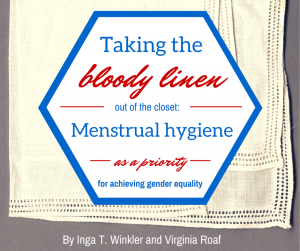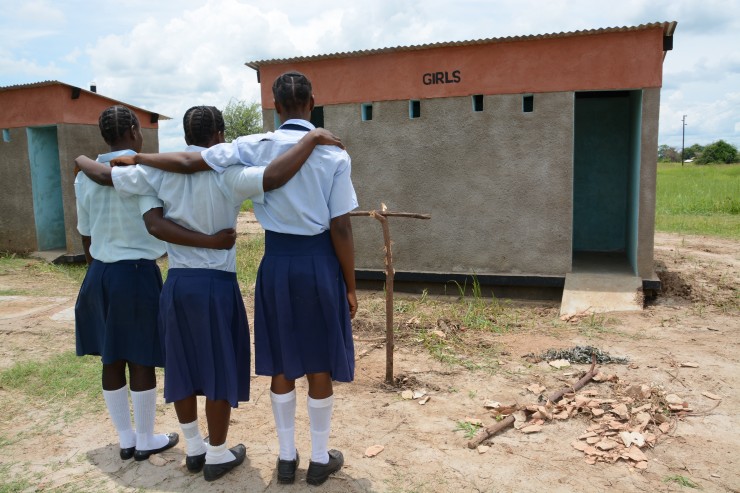Scholars and practitioners from the fields of human rights and water and sanitation will discuss menstrual hygiene from the perspective of gender equality on June 4th at the 21st Biennial Conference of the Society for Menstrual Cycle Research at The Center for Women’s Health and Human Rights, June 4-6, 2015, Suffolk University, Boston.
Human Rights in the Private Sphere: Menstrual Hygiene as a Priority for Gender Equality and Human Dignity
Inga Winkler, Scholar-in-residence, Center for Human Rights & Global Justice, NYU School of Law
In many countries, menstruation is shrouded in taboo and secrecy. Removing the taboos and ensuring better access to menstrual hygiene is essential for achieving gender equality and realizing human rights. The presentation seeks to explore human rights obligations to create an enabling environment for women and girls to practice adequate menstrual hygiene. It discusses various strategies including awareness-raising and breaking taboos, promoting good hygiene, and embedding menstrual hygiene in policies and programs by using examples from different country contexts. With a topic as personal and culturally specific as menstruation, incorporating women’s and girls’ views and preferences into programs and policies cannot be overestimated.
Poor menstrual hygiene, stigmatization, or cultural, social or religious practices that limit menstruating women’s and girls’ capacity to work, to get an education, or to engage in society must be eradicated. Considering menstruation as a fact of life and integrating this view at all levels will contribute to enabling women and girls to manage their menstruation adequately, without shame and embarrassment—with dignity.
Investigate and Expose: Challenges in Building an Evidence Base around Menstrual Hygiene as a Human Rights Issue
Amanda Klasing, Researcher, Human Rights Watch
Menstrual hygiene has emerged recently as a human rights issue, but this recognition alone does not mean that human rights practitioners will take up the issue. One barrier is the perceived or real limitations in their methodology.
This paper considers how human rights fact-finding methods may not readily lend themselves to building the evidence base for menstrual hygiene as a human rights concern. It will explore examples of how, despite challenges, menstrual hygiene concerns can be exposed within the context of broader investigations and it will address how practitioners can more deliberately incorporate menstrual hygiene in their investigations.
An important first step is for researchers to recognize the impact of menstrual hygiene on a broad array of women’s and girls’ human rights. Next, researchers should consider how best to expose this in the course of their research. Finally, researchers should consider how to include menstrual hygiene in the recommendations it makes to governments and other duty bearers.
Menstrual Hygiene Management in Schools: Meeting Girls’ Rights and Needs in Zambia
Sarah Fry, Hygiene and School WASH Advisor, USAID WASHplus Project
Zambia’s schools fall short of acceptable standards and ratios for access to safe drinking water and improved sanitation. The ratio of girls to toilet can be as high as 200:1. These shortfalls are believed to be factor in the high rate of school drop-out among girls, many of whom do not even finish primary school. As in other low-income contexts, dropout rates for girls in Zambia appear to increase after puberty. Menstrual hygiene management (MHM) is burdened with cultural taboo and myths. Girls are still excluded from school for as long as one month at their first menses.
USAID/SPLASH in Zambia address girls’ right to education by removing barriers to menstrual hygiene management in schools. SPLASH and the Ministry of Education research cultural norms, improve girl-friendly facilities and access to menstrual products, break taboos, and integrate MHM in the education system through water, sanitation and hygiene in schools
Menstruation is still a sensitive topic, but experience in Zambia has shown that taboos can break down rapidly and MHM can become a normal part of discourse around girls’ rights at local and policy levels.
Media Release and Registration for the SMCR Boston Conference.



